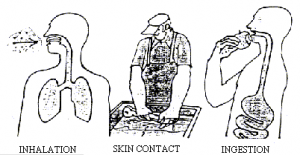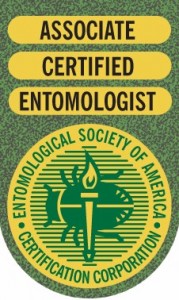 Let’s face it, this is a question that has to be asked because insects and the need for their control are everywhere. So too, are women carrying their unborn child. No one including your professional exterminator wants to see harm done to anyone from the use of pesticides especially a beautiful mother to be and her precious cargo.
Let’s face it, this is a question that has to be asked because insects and the need for their control are everywhere. So too, are women carrying their unborn child. No one including your professional exterminator wants to see harm done to anyone from the use of pesticides especially a beautiful mother to be and her precious cargo.
First, I am not a scientist nor a Doctor and for that matter I hold no degree in chemical engineering but what I do have is over 26 years of honing my skill and knowledge to better serve you. I have learned the best ways to apply pest control techniques and use the most accurate equipment. I doubt that any ‘do it yourself’ bug man can say this so my first rule of thumb would be to hire a professional.
Now I understand the apprehension of people when it comes to pesticides and for a pregnant woman there are more questions than answers. There is no conclusive study that I can find that absolutely links having your home sprayed and babies in the womb being harmed. Of course if you Google it I’m positive there are many scary sites with anecdotal evidence and maybe even some doctors who have signed on to this way of thinking as well. The link above is from The March of Dimes site and there are others where credibility is not an issue so my second rule is to watch where you get your information from.
In order to have pesticides enter the body there are only 3 ways. If we can safeguard anyone, let  alone a pregnant woman from being exposed in these manners we can assure ourselves of the least most possible risks.
alone a pregnant woman from being exposed in these manners we can assure ourselves of the least most possible risks.
- Inhalation;
Obviously breathing in a pesticide is what we all think of and for good reason. If pest control products are in the air and you are close enough you will inhale some. The best way to avoid this is to leave the area being treated. If that’s not possible then stay far enough away or in a closed room while the rest of the house is being serviced. Don’t run the fans while the house is being sprayed, this will just circulate any air born particles to unwanted places. After the treatment is done is the time to turn them on low to help things dry out. Your professional will also use other products such as baits or traps to keep your exposure to a minimum and perhaps only spray control or entry points in cracks and crevices.
- Ingestion;
Swallowing pesticides in the traditional way we think of it doesn’t happen much to adults. Unfortunately it happens to children far to often. What most often occurs is that we touch things that have pesticide residue on it and then put our hands or item to our mouth. It could be a spoon with spray on it, a cigarette,(you wouldn’t dare) or food. It could be you who applied the products yourself and didn’t clean your hands thoroughly. This is why rule one is in place and is the best way to avoid this from happening. If you are at all unsure, clean all food contacting surfaces and wash your hands often.
- Dermal contact;
Your skin is the largest organ of your body and pesticides can enter through the pores and go into your system. To avoid contact you simply must leave while an application is taking place. It’s doubtful that you will absorb dried material but mist from an overhead spray or particles blown by a fan have got to land somewhere. Your arm, face, hands or back of the neck are all susceptible and usually uncovered with normal dress.
 I could go on and on about the disease and health risks of roaches and other pests and why the need for positive pest control is so important especially for pregnant women. It is however your life and the life of your unborn child that is most paramount and if you decide you cannot have any spray in your home than that is up to you. You may want to also consider banning hairspray, cleaning chemicals, air fresheners, deodorant aerosols and so on because there are more poisonings per year with these products than there are with pesticides placed by a professional. A careful conscientious technician is your best bet for a pest free environment for you and your child and I hope if the need arises, you will consider it.
I could go on and on about the disease and health risks of roaches and other pests and why the need for positive pest control is so important especially for pregnant women. It is however your life and the life of your unborn child that is most paramount and if you decide you cannot have any spray in your home than that is up to you. You may want to also consider banning hairspray, cleaning chemicals, air fresheners, deodorant aerosols and so on because there are more poisonings per year with these products than there are with pesticides placed by a professional. A careful conscientious technician is your best bet for a pest free environment for you and your child and I hope if the need arises, you will consider it.




